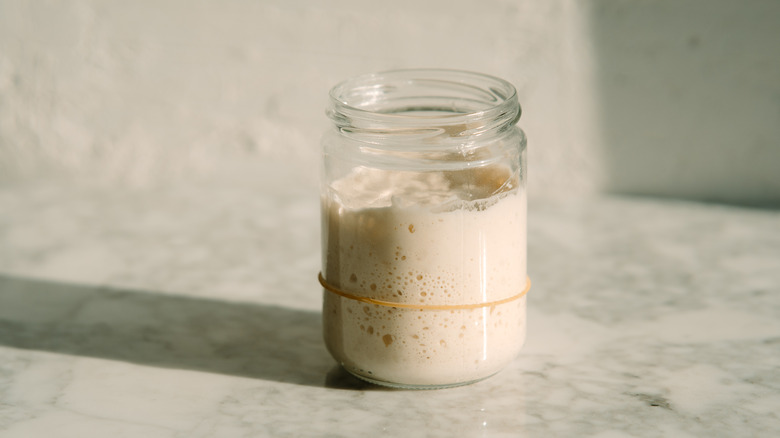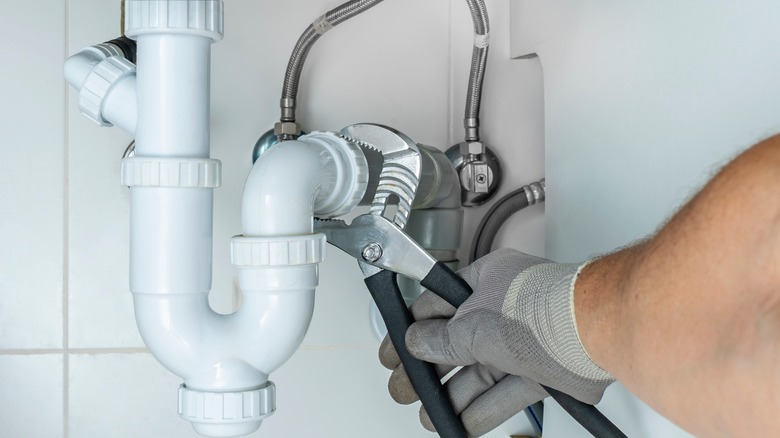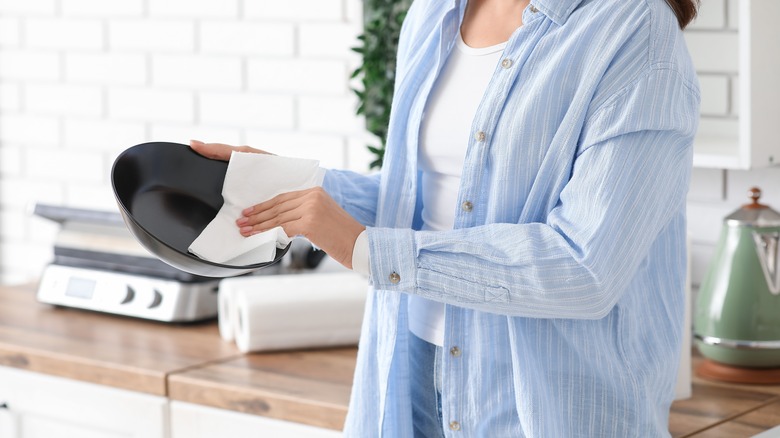Why Disposing Of Sourdough Starter Down The Drain Could Cost You
When you think about it, it doesn't feel like there's anything innately wrong with rinsing leftover sourdough starter down the drain. After all, starter is just flour and water, right? Well, if you're a newbie to baking, that may be your train of thought (raises hand ashamedly), but take note that this simple habit could end up doing crazy damage to your plumbing; and subsequently, your wallet.
Sourdough starter is a thick, gluey mixture that behaves more like cement when it hits your pipes. Once it dries, it hardens and sticks to the inside of the drain, causing serious clogs. To keep things flowing freely, the best rule is to treat sourdough starter like you would wet cement or sticky dough; toss it in the trash, not the sink. And if you need to rinse a jar or bowl, make sure to scrape it clean first and use cold water to reduce the stickiness.
What happens when you pour starter down the drain
When you pour starter down the sink (especially with warm water), you're sending live yeast into your pipes. That mixture can continue to ferment and expand, which is fine in a proofing bowl, but in your pipes it becomes a gummy mess. Over time, this gluey residue traps food scraps and grease, eventually building up to form a stubborn clog.
This situation is different from liquids like milk or diluted batter because sourdough starter is semi-solid and naturally adhesive. Once it dries out, it hardens like plaster. If your plumbing isn't flushed with strong water pressure, the remnants can sit undisturbed for days, weeks, or months. If you've got older plumbing or low-flow fixtures, you're especially at risk.
Add in the fermentation gases and acidic byproducts from yeast and you've now created the an environment ripe for corrosion and bad odors. A sourdough starter down the drain doesn't just threaten a single clog, either; it can compromise the overall health of your plumbing.
Safer ways to dispose of starter that won't clog your sink
If you're discarding part of your sourdough starter during regular feedings, you've got options, and none of them require risking your plumbing. The easiest and safest method is to scrape the discard into the trash. Simply line a small container with parchment or paper towels to catch the sticky glop and toss it with your regular garbage. If you compost, that's even better because starter discard is a high-carbon material that breaks down quickly in compost bins.
Another savvy option is to repurpose the discard into recipes like pancakes, crackers, or biscuits; especially if you made it from scratch and are looking to use every drop. Plenty of home bakers keep a 'discard jar' in the fridge to collect the excess until there's enough to cook with (make sure it's not spoiled). This prevents waste and also gives your starter a second life. A little extra effort during cleanup can save you hundreds in plumber fees and keep your sourdough hobby hassle-free.


